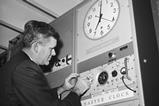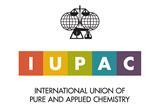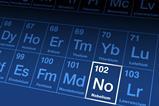Not home for the holidays? You’re not alone
Back in the mists of time, I was in a lab over the Easter break looking after an experiment that couldn’t be abandoned. I was working with Drosophila melanogaster, trying to breed the little blighters into the best fruit flies they could be. Inevitably, I dropped their habitat. One smash later, I was scooping up a mix of rotten fruit and broken glass, while three dozen fruit flies escaped into the ventilation system. Legend persists that my super-flies thrive to this day.

There’s something strangely satisfying – about being the last one standing in the lab. The silence is bliss, the lone light a warm glow, the self-flagellating effort while everyone else enjoys their downtime a badge of honour. Claire Jarvis can recall a principal investigator who, on the suggestion that maybe a break was in order, replied: ‘Labor Day? A day for labour!’
Others continue to work not out of necessity, but out of that very scientific of habits: superstition. ‘My advisor always insisted that great results happen when working on holidays,’ recalls Rick Mullins. ‘Probably just a ploy, but we finished a natural product on New Years’ Eve.’
While working through holidays can yield results, it’s worth remembering that burnout is real. We all need to take a break, and while sometimes getting out of the lab simply isn’t an option, realistically you don’t help anyone by forcing yourself to stay at your bench for a merit badge. It might seem like it’s ‘only a couple of hours’, but if those hours are the difference between physical and mental wellbeing, it’s not a price worth paying. A career in science is just that: a career. A day in the lab over Christmas is a sprint; your scientific endeavours are a marathon.
But for those of you who are stuck next to the rotovap on a chill Christmas morn, here’s a story to warm you. One Thanksgiving, Aidan Mouat found himself working hard in the lab (on his birthday, no less) while racing to publish his work to help win a fellowship. He recalls spending the day ‘wandering [Northwestern University’s] Cook hall trying to figure out a way to access the XPS instrument because my access card went defective’ – not his idea of a good time. There was a silver lining, though: ‘a girl from my lab felt bad for me and offered to buy me dinner that Saturday night. One thing led to another, and we ended up dating for a while. It was a very well timed kindness…’

















No comments yet